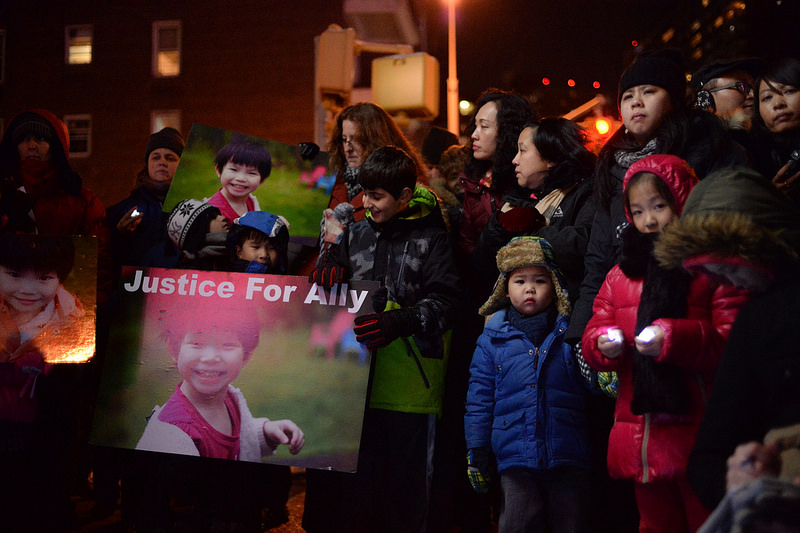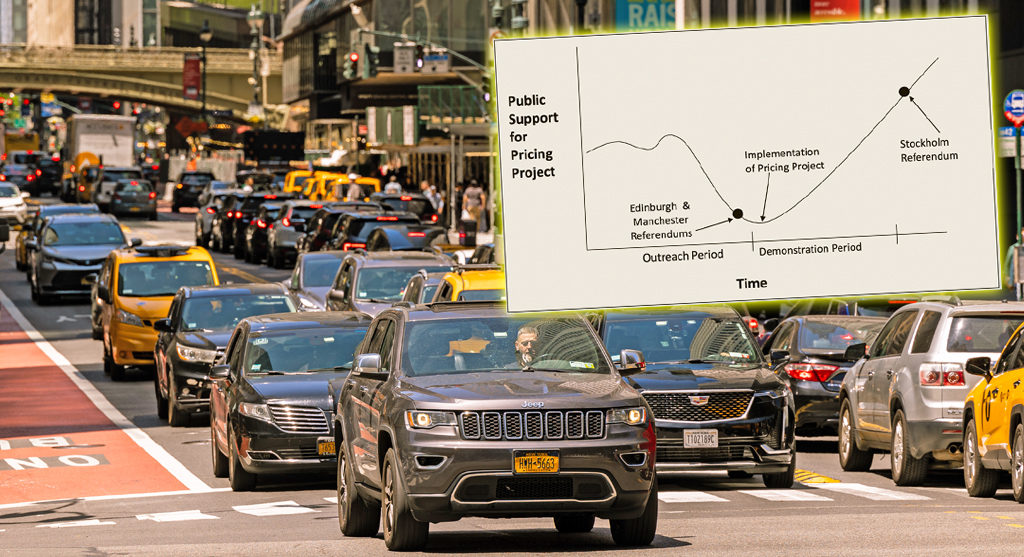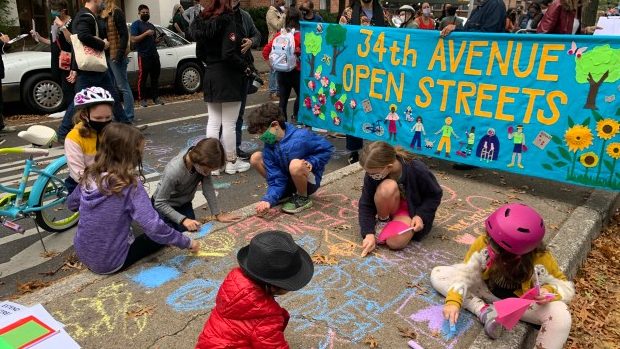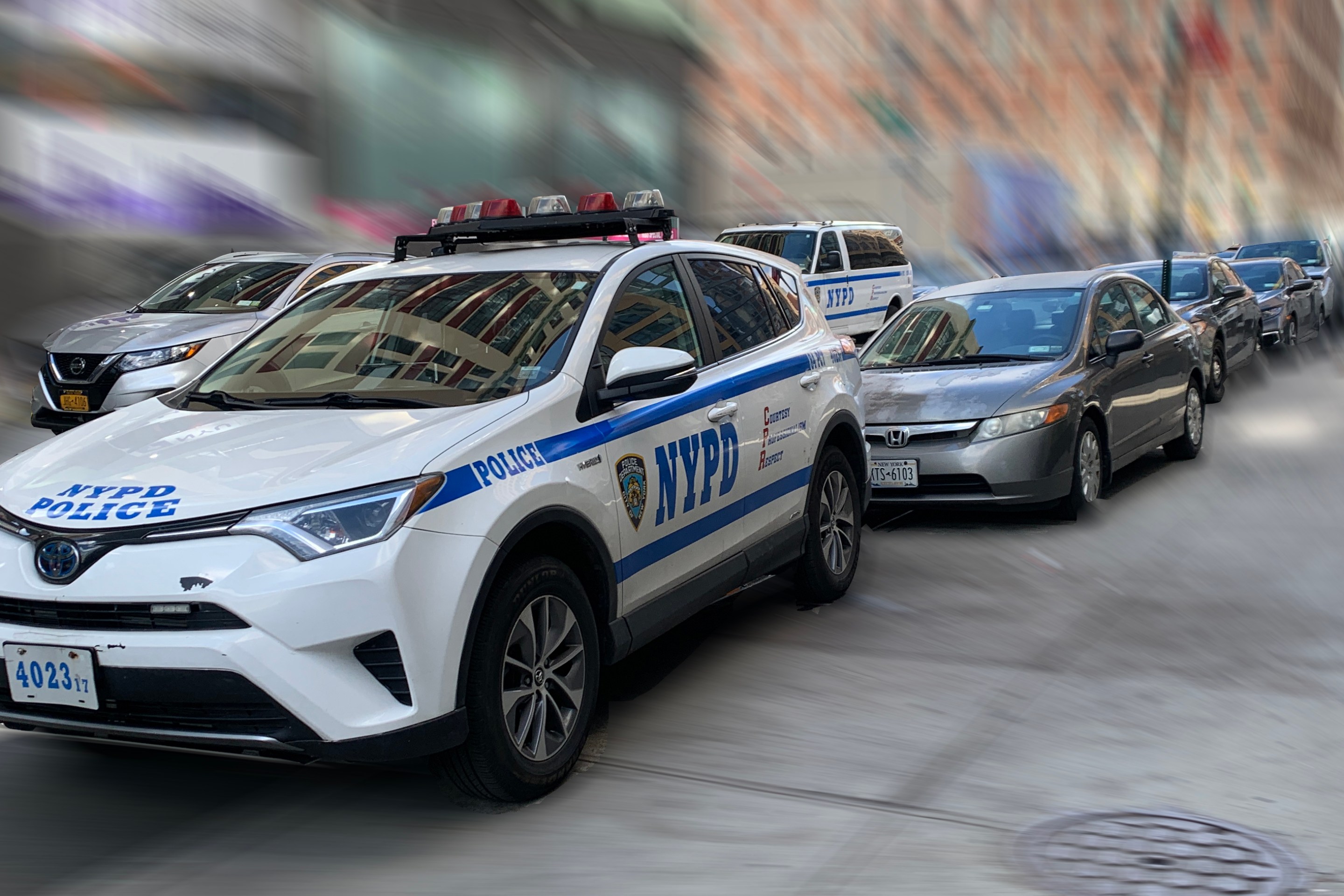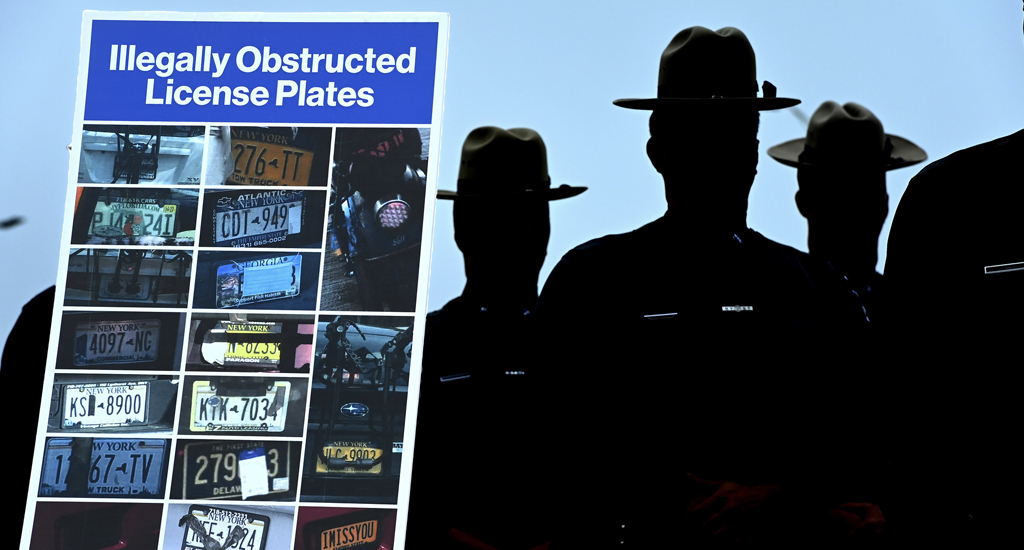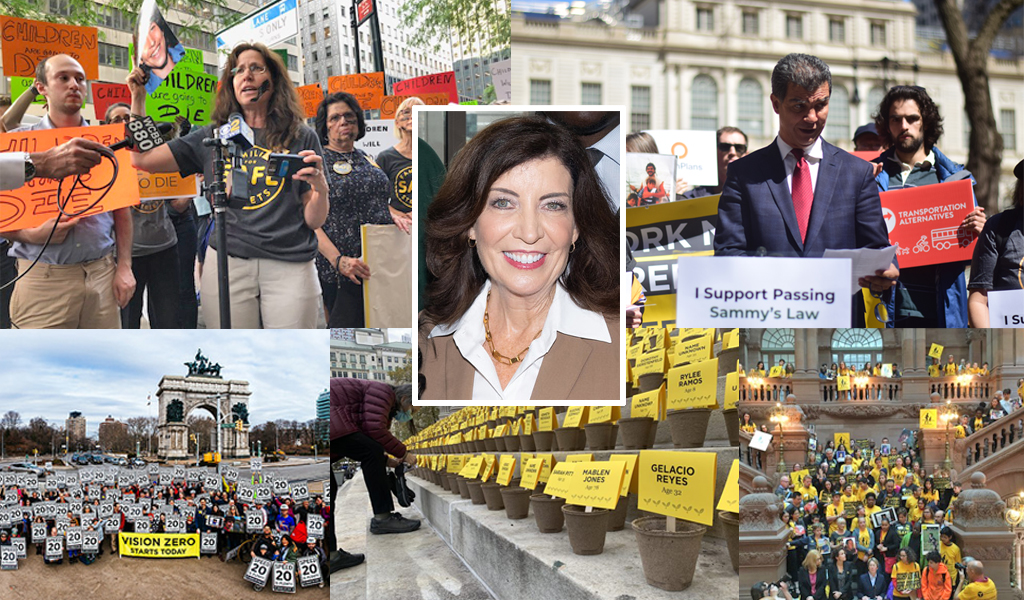When a motorist with a New York drivers license is involved in a fatal crash, the Department of Motor Vehicles may hold a hearing to determine whether that person should maintain his or her driving privileges. In practice, these DMV hearings have been wildly inconsistent and often result in zero consequences for deadly motorists. Over the last few years, advocates have called for standardized practices from DMV to suspend or revoke the licenses of drivers whose recklessness behind the wheel leads to serious injury or death.
But a review of recent hearings after fatal crashes reveals no apparent rhyme or reason to the penalties for deadly driving meted out by DMV.
Currently there are 39 cases on the DMV site involving drivers who were identified by NYPD or the media as having fatally struck a New York City pedestrian or cyclist, of which 34 have been resolved. (This probably undercounts the number of such cases, but NYPD shields the names of drivers who kill people unless charges are filed, so in many instances there's no way for the public to link a driver to a specific crash. The DMV also doesn't publish victims' names, making a comprehensive account very difficult.)
There are two basic categories of DMV license penalties -- revocations and suspensions. Drivers with revoked licenses can reapply after a time period set by the DMV, which then determines whether or not to restore driving privileges. A revocation is more severe than a suspension, which allows a driver to get his or her license back after a certain period of time simply by paying a fee.
Of the 34 cases that have been decided, the DMV revoked the licenses of 11 drivers, suspended 13, and took no action against 10. Of the 13 suspended drivers, five received 90-day suspensions, three received 365-day suspensions, and one each received suspensions of 75, 120, and 180 days, while two drivers were suspended for an undisclosed time period pending a hearing.
Rather than a consistent system, DMV judges appear to apply random penalties.
For example, Carlos Torres hit 48-year-old pedestrian Elise Lachowyn with a dump truck in a crosswalk on 11th Avenue outside the Javits Center in February 2012. The DMV revoked Torres’s license.
In a similar case, yellow cab driver Salifu Abubakar killed 88-year-old pedestrian Luisa Rosario in a Manhattan crosswalk in November 2015. Like Torres, Abubakar was charged with a Right of Way Law violation. But the DMV penalty imposed on Abubakar -- a 90 day suspension -- was less severe.
One factor may be that DMV adjudications, including cases where no action is taken, are influenced by the status of criminal cases. Frank Alibrandi, for instance, pled guilty to a Right of Way Law violation, careless driving, and failure to signal after he killed 36-year-old cyclist Hoyt Jacobs with a garbage truck in Queens in January 2015. Though DMV convened a hearing, it has taken no action against Alibrandi's license, but that could change after he is sentenced later this month.
To its credit, DMV sometimes takes action in cases where police and district attorneys declined to file charges. But penalties can be light. The man who hit 12-year-old Sammy Cohen Eckstein in Brooklyn had his license suspended for just six months, though the DMV judge ruled that the driver -- who was not charged by police or the district attorney -- was in violation of three traffic laws.
The DMV at times ignores law enforcement findings of fault in fatality cases. The agency dismissed tickets issued to the drivers who killed Brooklyn cyclist Mathieu Lefevre and 3-year-old Allison Liao in Queens -- but eventually penalized both drivers following media attention generated by public outcry.
The inconsistencies reflect the varying circumstances of DMV license hearings, said Steve Vaccaro, an attorney who represents crash victims. Sometimes DMV administrative law judges take into account video evidence and police testimony, while other times they simply accept the word of the motorist whose victim is not alive to tell her side of the story.
"The disparate outcomes may be explained by the fact that often victims' survivors do not attend the hearings, and when they do, they often are not represented by counsel," Vaccaro said. The DMV sends hearing notifications to victims' family members by mail, he added, but the notices are sent to the victim's last known address months after a crash, "so word of the hearing often doesn't reach survivors."
Survivors may not have the emotional or financial support they need to represent their loved one at a hearing, Vaccaro said, and are not told that their presence can increase the likelihood of consequences for the driver. DMV hearings may be held in tiny, windowless conference rooms, where victims' family members sit across a table from the person who killed their loved one. Survivors who attend DMV hearings can be overwhelmed listening to testimony, "often false and self-serving," said Vaccaro, and unless accompanied by an attorney "are not in a position to focus the judge on the relevant evidence."
"Participation from police crash investigators in the hearings is also haphazard," said Vaccaro.
Families for Safe Streets has called on the DMV to take steps to standardize motorist penalties and reform its hearing process, including the adoption of a victim's bill of rights, but the DMV -- which is controlled by Governor Andrew Cuomo -- has failed to act.
"The hearing process should be revamped and expanded to include all serious injury cases," said Vaccaro, "with mandatory presentation of evidence by investigating police officers, and greater rights and better treatment for crash victims and their survivors."
